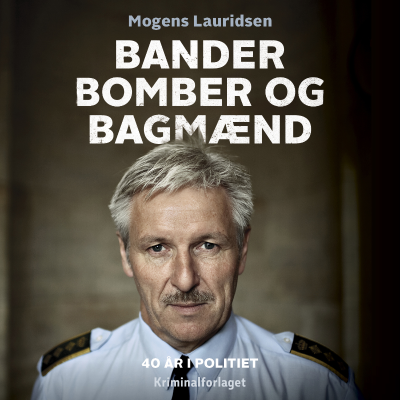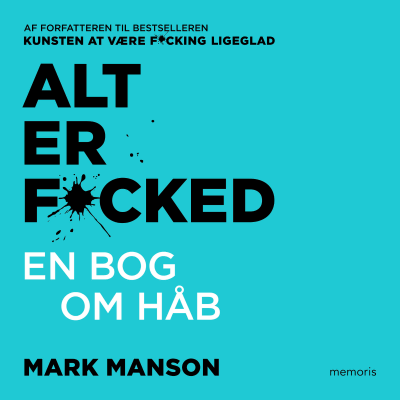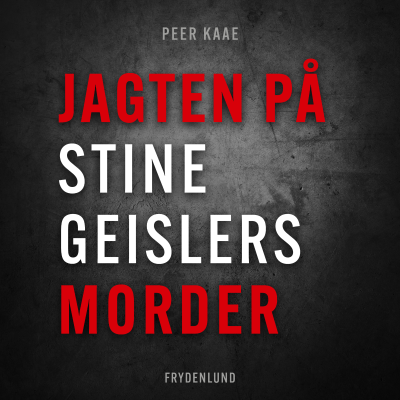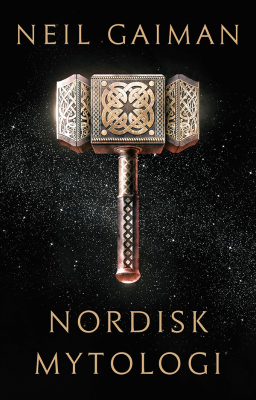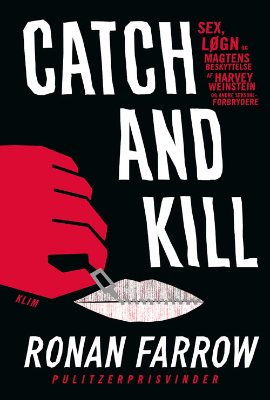
Hypervelocity
Podcast af James Simpkin
Begrænset tilbud
3 måneder kun 9,00 kr.
Derefter 99,00 kr. / månedIngen binding.

Mere end 1 million lyttere
Du vil elske Podimo, og du er ikke alene
Rated 4.7 in the App Store
Læs mere Hypervelocity
A podcast about the impact of military technology on strategy and ethics.
Alle episoder
21 episoderDr. Togzhan Kassenova [https://www.albany.edu/rockefeller/faculty/togzhan-kassenova] is a Washington, DC-based senior fellow at SUNY-Albany’s PISCES and a nonresident fellow at the Carnegie Endowment for International Peace. She specializes in nuclear politics, WMD nonproliferation, strategic trade controls, sanctions, and financial crime prevention. Her current work focuses on countering proliferation financing. She holds a Ph.D. in Politics from the University of Leeds. From 2011 to 2015, she served on the UN secretary general’s Advisory Board on Disarmament Matters. For this month’s episode of Hypervelocity, I was joined by Dr. Togzhan Kassenova to discuss her book Atomic Steppe: How Kazakhstan Gave Up the Bomb [https://www.sup.org/books/title/?id=33596] (Stanford University Press, 2022). Togzhan’s work powerfully recounts the impact of the Soviet nuclear programme on the people and nation of Kazakhstan, as well as the country’s efforts to denuclearise after the collapse of the USSR—an experience that echoes the histories of other colonial nuclear testing grounds, such as Australia, the Pacific Islands, and Native American lands. What stands out in Togzhan’s account are the deeply human stories of resistance, resilience, and at times, dark humour in the face of the devastating legacy of nuclear testing. Her work also challenges classic International Relations theories that treat states like ‘Kazakhstan’, the ‘USSR’, or the ‘United States’ as black boxes of foreign policy. Instead, she highlights the agency of individuals—both among the general public, who organised anti-nuclear protest movements, and among diplomats, who built personal relationships and trust across borders to make denuclearisation possible. These efforts were crucial in helping Kazakhstan give up the nuclear weapons it inherited from the Soviet Union and chart a new path. Togzhan’s writing also critiques the assumptions of game theory, demonstrating that it is possible for nations to enhance their security without resorting to the zero-sum logic of mutually assured destruction. In fact, following its decision to relinquish its nuclear arsenal, Kazakhstan emerged as a model state in upholding international law, swiftly joining agreements such as the Comprehensive Nuclear-Test-Ban Treaty and the Non-Proliferation Treaty. Later in the episode, we explore whether—given Russia’s invasion of Ukraine—Kazakhstan was right to give up its nuclear weapons. Finally, we catch up on what is happening today with the survivors of the Soviet-era nuclear tests. Chapters 00:00 Introduction to Toghzan Kassenova and Her Work 02:10 The Impact of Nuclear Testing in Kazakhstan 08:57 Kazakhstan's Decision to Denuclearize 16:07 The Infrastructure of Nuclear Testing 20:25 Kazakhstan's Role in Global Nuclear Disarmament 29:30 The Importance of International Treaties 35:17 Human Connections in Nuclear Disarmament 41:31 Kazakhstan as a Model for Disarmament 45:37 Reflections on Security and Nuclear Deterrence 50:05 The Legacy of Nuclear Testing on Survivors 55:32 Conclusion and Final Thoughts
All comments and opinions are those of the individuals recorded; they do not reflect any official policy or position of the Department of Defense or U.S. government. Dr. Ben Zweibelson [https://x.com/BZweibelson] is an author, philosopher, and a retired Army Infantry Officer with multiple combat tours in Iraq and Afghanistan. Ben lectures and publishes on military strategy, operational planning, design thinking, and war philosophy. His latest book, Reconceptualizing War [https://www.helion.co.uk/military-history-books/reconceptualizing-war-.php], was released on April 30th. He has published two other books on the military design movement and innovation in defence applications. Ben earned the Army’s Master Parachutist, Pathfinder, Air Assault, Expert and Combat Infantryman’s Badges, the Ranger Tab, and was awarded four Bronze Stars in combat. He resides in Colorado Springs with his wife and children. His hobbies include getting injured doing jiu-jitsu, snowboarding, and CrossFit. A magnum opus, a tour de force—Dr. Ben Zweibelson’s latest book, Reconceptualizing War [https://www.amazon.com/Reconceptualizing-War-Ben-Zweibelson/dp/1804517291/ref=sr_1_1?crid=2XYMKEBO204JR&dib=eyJ2IjoiMSJ9.mbseCfBR3yYTlELvjPGgSlStCIv_3nG2x9M0dvtz0zVc80jlmdFLJ68m8YUvpygx.hr0ZS85yndb-OhSZ2n2jgMEBZpxjDJ8SjnOyiIIpQ6E&dib_tag=se&keywords=reconceptualizing+war&qid=1746040212&sprefix=reconcept%2Caps%2C164&sr=8-1], is all of these and more. I was fortunate enough to receive an advance copy, and it was a rich feast. If you’ve ever wondered what your favourite strategist, philosopher, or school of thought had to say about warfare, you’re more than likely to find them in the pages of Reconceptualizing War [https://www.amazon.co.uk/Reconceptualizing-War-Ben-Zweibelson/dp/1804517291/ref=sr_1_1?crid=3110RAOI7Z8LB&dib=eyJ2IjoiMSJ9.3JcGEnPOXtXn1HCm3XpAmg.MYs60l2_aFWaFPbjcmIKwbihm0OmMJtZRf5JdC9Zwuo&dib_tag=se&keywords=reconceptualizing+war&qid=1746039342&sprefix=reconceptuali%2Caps%2C97&sr=8-1]. From Clausewitz to Kant, Tolstoy, Engels, Mao, the Futurists, Marcuse, or Deleuze and Guattari—and several dozen more—every time I wondered if a thinker was about to appear, there they were. I especially appreciated how Reconceptualizing War complemented the aims of my Hypervelocity podcast: going deeper to examine the philosophical underpinnings of conflict. The cover art goes hard too. Our conversation delves into the themes of reconceptualising war through various philosophical and theoretical lenses. Dr. Ben Zweibelson discusses the importance of social paradigms, the historical context of anti-fascism, and the evolution of ideological movements like Antifa. The dialogue also explores the theoretical connections between Kant, Clausewitz, and contemporary armed movements, as well as the implications of game theory and the future of warfare in the age of artificial intelligence. Chapters 00:00 – Introduction to Reconceptualizing War 02:44 – Theoretical Foundations: Burrell, Morgan, and Rapoport 10:48 – Kant, Clausewitz, and Contemporary Movements 17:01 – Antifa: Historical Context and Modern Implications 26:03 – Understanding War: Paradigms and Frameworks 37:48 – Radical Structuralism and Omnism in Warfare 47:49 – The Marxist Vision of Utopia 50:15 – The Enduring Nature of War 52:04 – Game Theory and Warfare 57:57 – Complexity Science and the Afghan Conflict 01:06:28 – Radical Structuralism and Revolutionary Success 01:14:56 – Détente and Radical Structuralism 01:21:47 – Interpretivism and the Limitations of Diagrams All comments and opinions are those of the individuals recorded; they do not reflect any official policy or position of the Department of Defense or U.S. government.
Dr Mark Lacy [https://x.com/lacy_mark], a senior lecturer [https://www.lancaster.ac.uk/security-lancaster/people/mark-lacy] at Lancaster University, joins me to discuss his book "Theorizing Future Conflict: War Out to 2049 [https://www.routledge.com/Theorising-Future-Conflict-War-Out-to-2049/Lacy/p/book/9781032113654]." We explore the evolving nature of warfare, focusing on the impact of new technologies like AI, drones, and cyber warfare. Mark highlights the challenges of predicting future conflicts, citing the ongoing war in Ukraine as a case study. He contrasts the liberal and authoritarian ways of war, emphasizing the potential for AI to make warfare more humane and pose significant risks. Mark also discusses the concept of "protopia" and "necropolitics," and the unpredictable nature of technological advancements in warfare. Questions: 1. Upon the 100th anniversary of the founding of the People's Republic of China in 2049, what lessons will the PLA have learnt about warfare from today's conflicts in Ukraine and the Middle East? 2. Is Bakhmut the 21st Centuries Guernica, with drones representing a revolution in military in military affairs without which a combatant has no hope of winning? 3. In what way do drones manifest the protopian and necropolitical aspects of the liberal way of war? 4. I was struck by your thought experiment Drones Over Aleppo 2042: Terrorism in an Age of AI, with its depictions of granular drones delivering humanitarian aid amidst the lawless liminal space of a sprawling refugee camp while searching for a terrorist leader who taunts the West with atrocity deepfakes and who may in fact be an AI. Drawing on Virilio, is it inevitable that the invention of AI entails the AI incident, where AI escapes our control and turns on us, leading to bitskrieg and cybotage?
Paul Rogers [https://www.bradford.ac.uk/staff/pfrogers/] is Emeritus Professor of Peace Studies at Bradford University and an Honorary Fellow of the Joint Service Command and Staff College (JSCSC). Paul lectures on changing drivers of international conflict with particular interests in the Middle East and paramilitary violence, and also has a long-term research interest in the interaction between socioeconomic marginalisation, climate disruption and security. Paul has written/edited 30 books and over 150 papers and book chapters. Paul is a regular broadcaster on radio and TV networks worldwide. He also writes a weekly column on international affairs for Open Democracy. [https://www.opendemocracy.net/en/author/paul-rogers/] In this conversation, I speak with Professor Rogers about his latest book, The Insecurity Trap [https://www.hawthornpress.com/], which explores the intersection of ecological, economic, and military issues and their collective impact on global security. The discussion spans topics including climate breakdown, military-industrial complexes, socio-economic inequalities, and practical actions individuals can take to foster positive change. Questions covered: 1. How do ecological, economic and security issues combine to create the insecurity trap? 2. What is 'liddism', and why do Western governments prefer it to dealing with the root causes of insecurity? 3. Why is it so hard for conventional military commanders to see ecological collapse as a spur to conflict, and what do those that do suggest to address it? 4. What impact do you think the new Trump administration could have on ecological issues as a source of insecurity? 5. Could you envisage a perfect storm, so to speak, of ecological, economic and security issues coming together to create a new conflict; such as rising sea levels causing mass migration from Bangladesh into India, destabilizing the whole subcontinent and leading to a regional war with Pakistan? 6. What would be your most optimistic hope for how the intertwining threads of the insecurity trap might play out as we move past the first quarter of the 21st Century?
Owain Leyshon [https://twitter.com/RaymondKHesle] (Raymond K Hessel) is a philosopher and writer based in Ireland. He focuses primarily on the phenomenology of technology and political philosophy, with a special interest in the ancient Greeks. Owain blogs regularly on Substack and a number of his essays have been published in the collection called Notes from the Pod. Joshua Hansen [https://twitter.com/hypertheology] is a US-based cultural theorist focused on hypermodernity and the rise of digital religion. His work aims to demystify contemporary technoculture and operates at the intersection of Academia, Science & the Internet. Hansen published his first book, Tractatus Anti-Academicus, in 2023. It's been a while in coming but it was great to finally discuss French philosopher Paul Virilio's Pure War with Joshua and Owain. I'd been introduced to Virilio by their excellent recent course [https://thinkingatlightspeed.gumroad.com/l/viriliocourse] on his work in general. Virilio is perhaps best known as a theorist of speed and the speeding up of society through the appearance of ever faster technology, and of the inevitability of the accident bound up in the arrival of this new technology. His most famous quote is probably "when you invent the plane, you also invent the plane crash". Indeed, Virilio singles out military technology in particular as a leading vector in the acceleration of society. Or, to paraphrase Virilio, society accelerates at the speed of warfare, and this was the theoretical meeting point where I wanted to converge with Owain and Joshua for our discussion. The main theme emerging from our discussion in this episode was the position of nuclear weapons in Virilio's theorising. For Virilio, the ever increasing speed of military technology means that the four minute warning is all that's left of human agency. With the arrival of laser weapons - weapons that literally operate at the speed of light - and autonomous drones, the time frame for human decision making will will shrink to nothing and Pure War will finally be achieved: war which can carry on indefinitely without any human input. Pure War is also prefigured in nuclear Mutually Assured Destruction (MAD), since a war that never begins never ends. We also discussed whether nuclear weapons have prevented world war III since their inception, moving to critique the so-called Realist school of MAD from a Virilian perspective, in that it just isn't realistic enough to believe that the continued existence of nuclear weapons over the longue durée won't at some point entail accidental nuclear war. Episode Questions: 1. Pure war = Infinite preparation for war. “The invention of the airplane was the invention of the air crash”. Q. Does the invention of nuclear weapons entail the inevitability of nuclear war in Virilio’s schema? 2. Endo-colonisation: an a-national military class opposed to its own civilian population colonises its own territory, leading to the non-development of civilian economies. Q. How are the militaries of the great powers a greater threat to their own populations than their supposed enemies 3. Nuclear Monarchy: nuclear weapons gives us a new humanism founded on destruction. The weapon present by "divine right" at the heart of our society. Yet the military man is not an intersessionist priest, he is an executioner because he does not care about death, only killing. Can Virilio's thought be used to counter nuclear annihilation? 4. Holy War: Nuclear war is Just War with technological characteristics, encouraging the complete release of apocalypse level violence. As Christians, can Virilio's fear that belief in an afterlife encourages war and Girard's notion that war arises from a mimetic spiral of violence due to lack of a belief in the Christ scapegoat, be reconciled?

Rated 4.7 in the App Store
Begrænset tilbud
3 måneder kun 9,00 kr.
Derefter 99,00 kr. / månedIngen binding.
Eksklusive podcasts
Uden reklamer
Gratis podcasts
Lydbøger
20 timer / måned















